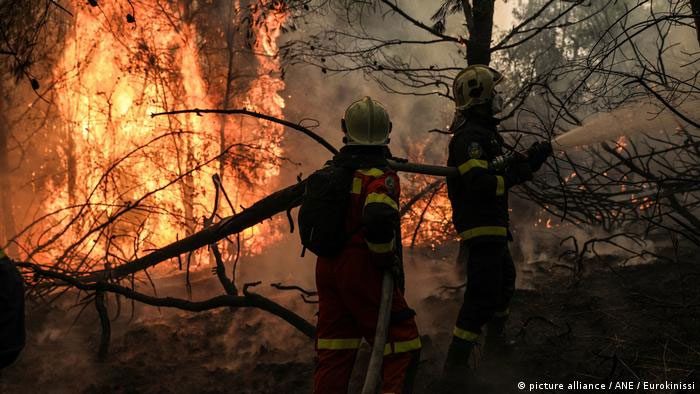Chinese scientists have recently discovered that brown carbon emitted from wildfires actually contributes more to global warming, while warning that the ongoing increase in global temperatures poses a risk of causing even more wildfires in the future. The study was published in the journal One Earth.

Brown carbon produced from biomass burning is a cause of global warming.
In this study, scientists described how carbon gases produced from biomass burning in the Northern Hemisphere have accelerated warming in the Arctic. According to Mr. Feng Bingtian, a researcher at Tianjin University, analyses and simulations indicate that the warming effect of brown carbon aerosol particles in the Arctic is about 30% higher than that of black carbon.
Over the past 50 years, temperatures in the Arctic have risen three times faster than in other regions of the planet, and it seems that wildfires are a contributing factor to this situation.
The researchers found that brown carbon produced from biomass burning is responsible for a warming effect with a temperature increase at least twice that of brown carbon from fossil fuel combustion.
In 2017, China’s icebreaker Snow Dragon conducted research in the Arctic Ocean on aerosol particles floating in the Arctic air and identified their sources. Scientists on board also studied how brown carbon affects the climate, comparing it to the dense black carbon obtained from high-temperature fossil fuel combustion.
According to the research led by scientist Feng Bingtian, wildfires erupting along with massive brown smoke plumes are formed from brown carbon particles suspended in the air. Like black carbon and CO2, brown carbon increases temperatures by absorbing solar radiation. Mr. Feng Bingtian believes that increased wildfires will emit more brown carbon aerosol particles, further warming the Earth and leading to more frequent wildfires.


















































